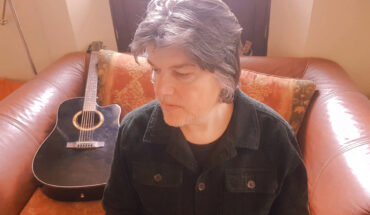 The world was a strange place in July 1980. The hood of Thatcher had opened to reveal a big bad wolf; nuclear war was a distinct (sometimes accidental) possibility. Liverpool was still in a post-Beatles hangover, shutting its ears to the noise. Still, LFC had won the league, two points ahead of a resurgent Manchester United.
The world was a strange place in July 1980. The hood of Thatcher had opened to reveal a big bad wolf; nuclear war was a distinct (sometimes accidental) possibility. Liverpool was still in a post-Beatles hangover, shutting its ears to the noise. Still, LFC had won the league, two points ahead of a resurgent Manchester United.
I saw most of the year from a rug, playing with Star Wars action figures. Which at £1.50 a Jedi, my Dad assured me were “a friggin’ waste of money”. Whilst I re-enacted the escape from The Death Star for the umpteenth time, my eldest brother hung around with an assortment of strange, urgent, dissatisfied young men. All of them wanted to be famous; the route out of Liverpool was being in a band.
In the midst of this gorgeous young chaos, Echo & the Bunnymen released Crocodiles. It’s a product of that time, the result of all that spent and wasted energy. Ian McCulloch was already talking a good game, later working his scally braggadocio into insane levels of confidence/irritation. It already shows signs here: although the front cover is the band in enchanted, lurid woodland, the back shows Mac The Mouth himself.
What is striking about the album is its contradictions. A man with a gob the size of The Mersey Tunnel is having some sort of existential crisis. The lyrics are the product of an erudite young man, trapped in his own psyche. Or if you’re cynical, the archetypal solipsism of any teenage kid, confined to his own bedroom. Dostoyevsky would be both proud and horrified at the same time.
He’s waiting around for a night out, but then again it could be a date; or a revolution:
“Where the hell have you been?
We’ve been waiting with our best suits on
Hair slicked back and all that jazz”.
The album’s opener ‘Going Up’ already states, “Let’s get the hell out of here”. Liverpool is the safe, glorious, cobweb festooned tomb. Strange magic is being sampled down at ‘Villiers Terrace’: “People rolling round on the carpet, mixing up the medicine”. If Crocodiles does have a theme, it’s ‘I’m off to be famous and glorious. See you around some time’.
The punk era had already ended in death, writs and disinterest. It is, however, both churlish and glib to label Crocodiles as a ‘post punk’ album. It’s roots are late-era Doors and 1960’s freakbeat. Any band of that era (and even some now) nod to, imbibe, and celebrate foolishly Merseybeat. There is a mere whiff of fab gear here. It’s music that has the ambition to be famous, whistled by the milkman at dawn, the lyrics from Smash Hits posted on bedroom walls, pored over like ancient runes.
It was filtered by a variety of Scouse scenesters: Bill Drummond, Dave Balfe, Ian Broudie. The music is bare bones basic, guitar, bass, drum machine. The production itself seems ham-fisted now; the bass and drums are too high up in the mix. McCulloch’s voice rides above it all: wailing, insistent, nasal, rising and falling. In many ways, it’s as much a relic of a forgotten, beautiful, savage era as cave paintings. It was a time when albums burned as slowly as fireworks and went out just as quickly. A new one had to be released on an annual basis, the angry young men, the kids, the milkmen had to be entertained. Albums swallowed your pocket money and they came out on a Friday. Imagine that.
From here on in, Echo & the Bunnymen went on to greater heights. Split, departure, death, and penitence followed swiftly, even from the mouth of the lead singer. He’s still here somewhere. Like Banquo’s ghost, he can be seen around Liverpool. In much the same way as his friend/enemy Pete Wylie, he’ll still tell you how great those days were, how sound he was and yes, it is me.
At the end of the day, Crocodiles is a calling card for a band that were once moderately successful chart regulars. Being on Top Of The Pops on Thursday night was as good as it gets. It’s an echo from a different age, when everyone wanted to be in a band and the world was as small as my child’s eye view of the rug.
Kev McCready
@KevMcCready






